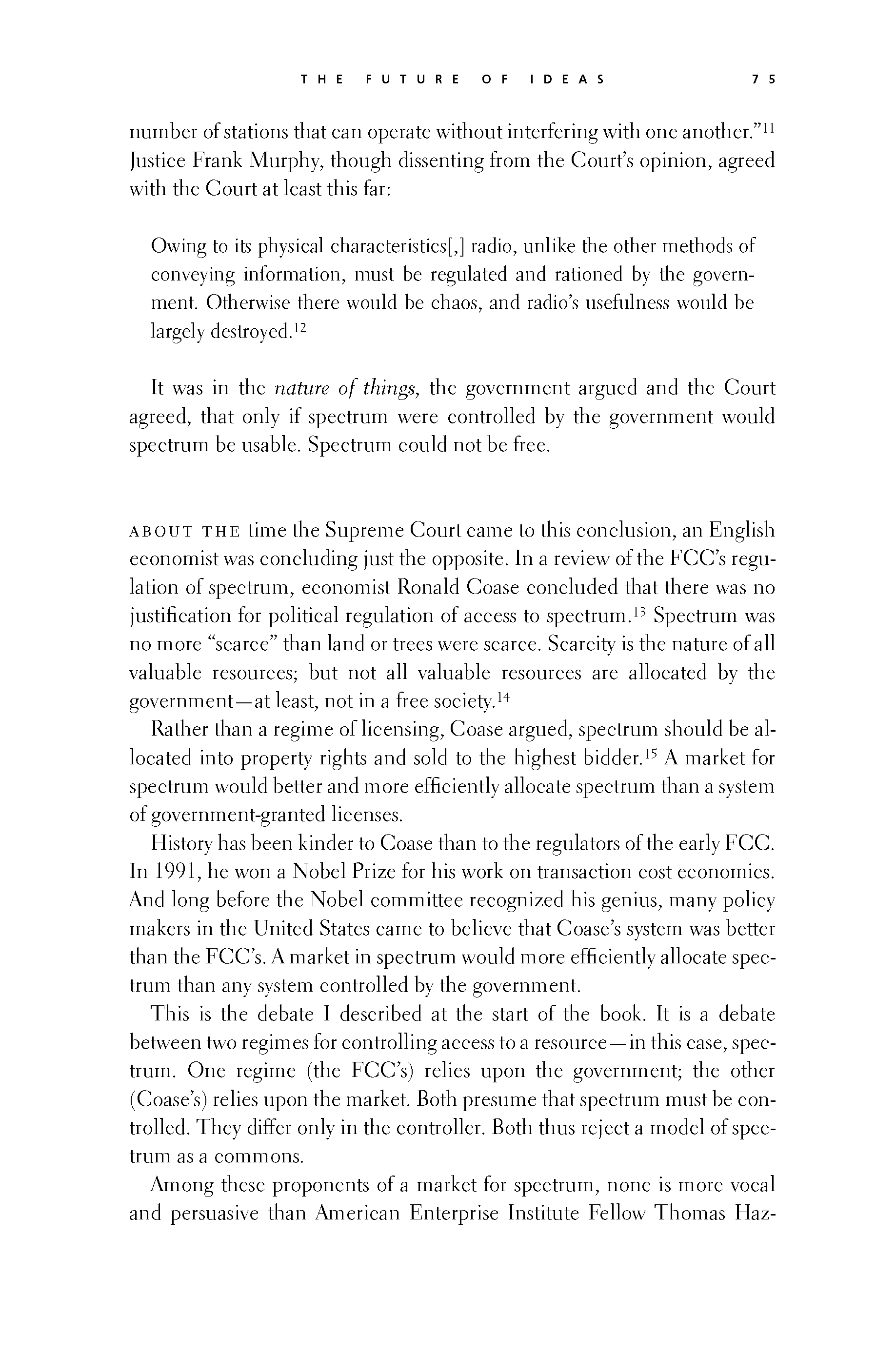 p074 _
-chap- _
toc-1 _
p075w _
toc-2 _
+chap+ _
p076
p074 _
-chap- _
toc-1 _
p075w _
toc-2 _
+chap+ _
p076
number of stations that can operate without interfering with one another."[5-11]
Justice Frank Murphy, though dissenting from the Court's opinion, agreed
with the Court at least this far:
____ Owing to its physical characteristics[,] radio, unlike the other methods of
____ conveying information, must be regulated and rationed by the govern-
____ ment. Otherwise there would be chaos, and radio's usefulness would be
____ largely destroyed.[5-12]
It was in the _nature_of_things,_ the government argued and the Court
agreed, that only if spectrum were controlled by the government would
spectrum be usable. Spectrum could not be free.
///\\\
About the time the Supreme Court came to this conclusion, an English
economist was concluding just the opposite. In a review of the FCC's regu-
lation of spectrum, economist Ronald Coase concluded that there was no
justification for political regulation of access to spectrum.[5-13] Spectrum was
no more "scarce" than land or trees were scarce. Scarcity is the nature of all
valuable resources; but not all valuable resources are allocated by the
government -- at least, not in a free society.[5-14]
Rather than a regime of licensing, Coase argued, spectrum should be al-
located into property rights and sold to the highest bidder.[5-15] A market for
spectrum would better and more efficiently allocate spectrum than a system
of government-granted licenses.
History has been kinder to Coase than to the regulators of the early FCC.
In 1991, he won a Nobel Prize for his work on transaction cost economics.
And long before the Nobel committee recognized his genius, many policy
makers in the United States came to believe that Coase's system was better
than the FCC's. A market in spectrum would more efficiently allocate spec-
trum than any system controlled by the government.
This is the debate I described at the start of the book. It is a debate
between two regimes for controlling access to a resource -- in this case, spec-
trum. One regime (the FCC's) relies upon the government; the other
(Coase's) relies upon the market. Both presume that spectrum must be con-
trolled. They differ only in the controller. Both thus reject a model of spec-
trum as a commons.
Among these proponents of a market for spectrum, none is more vocal
and persuasive than American Enterprise Institute Fellow Thomas Haz-
[[75]]
p074 _
-chap- _
toc-1 _
p075w _
toc-2 _
+chap+ _
p076